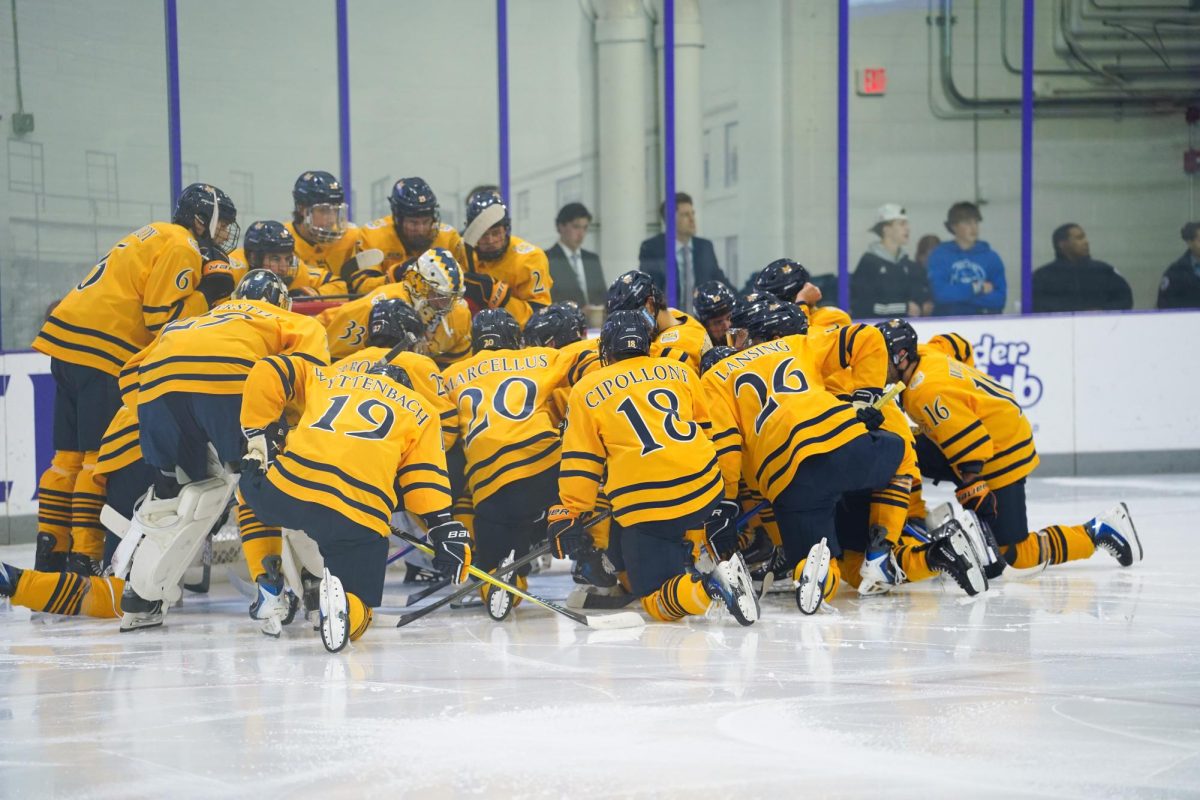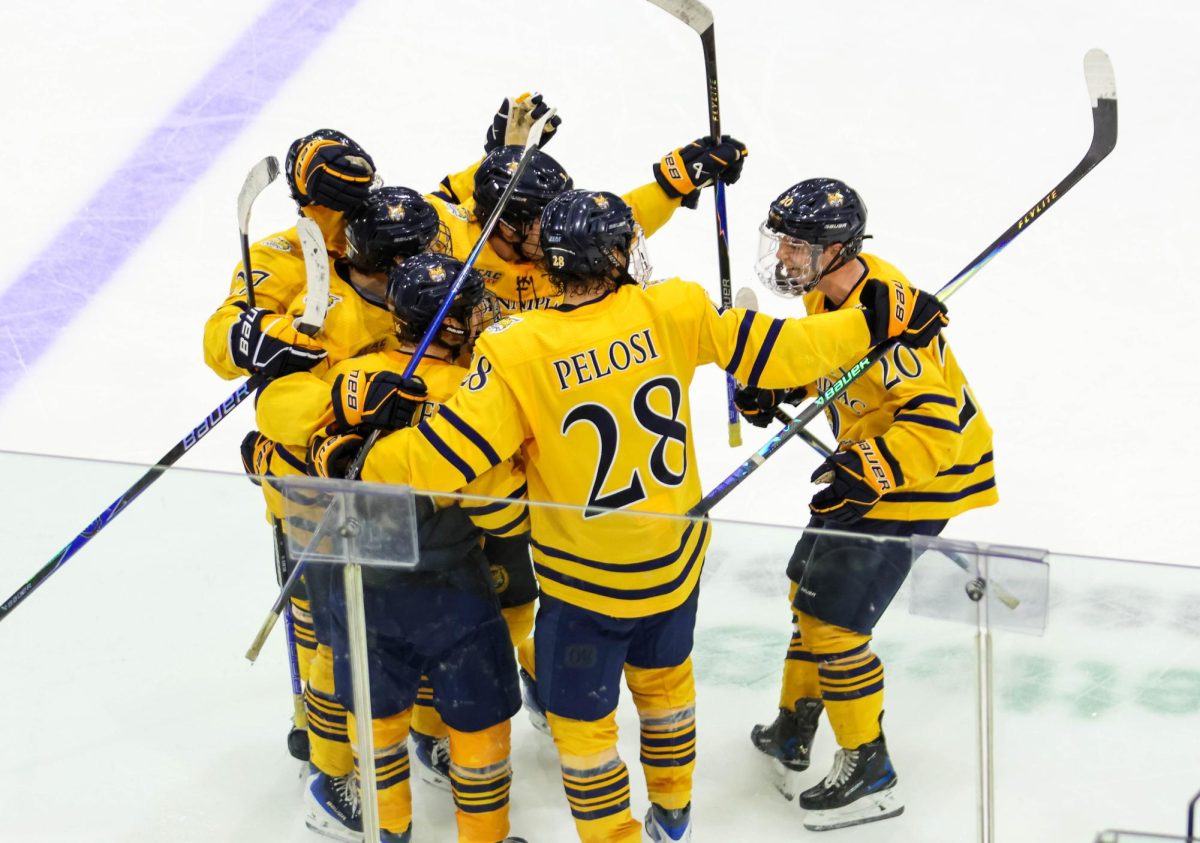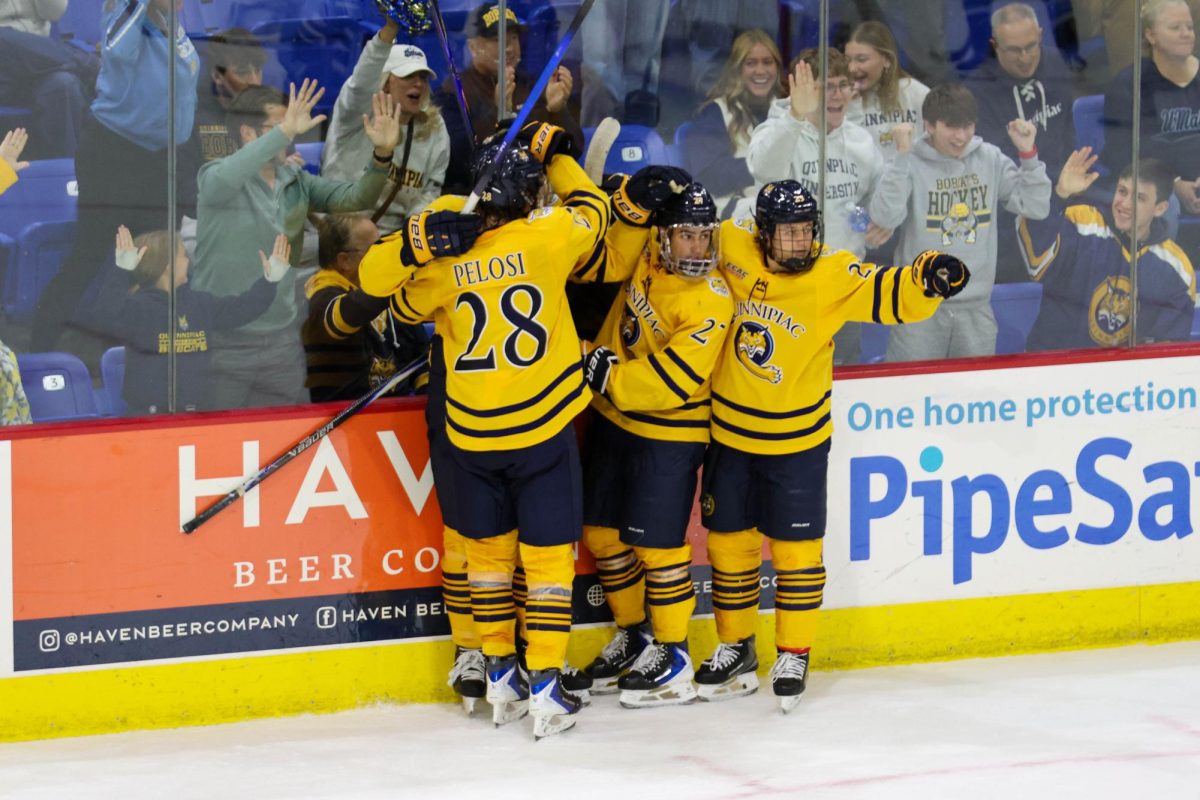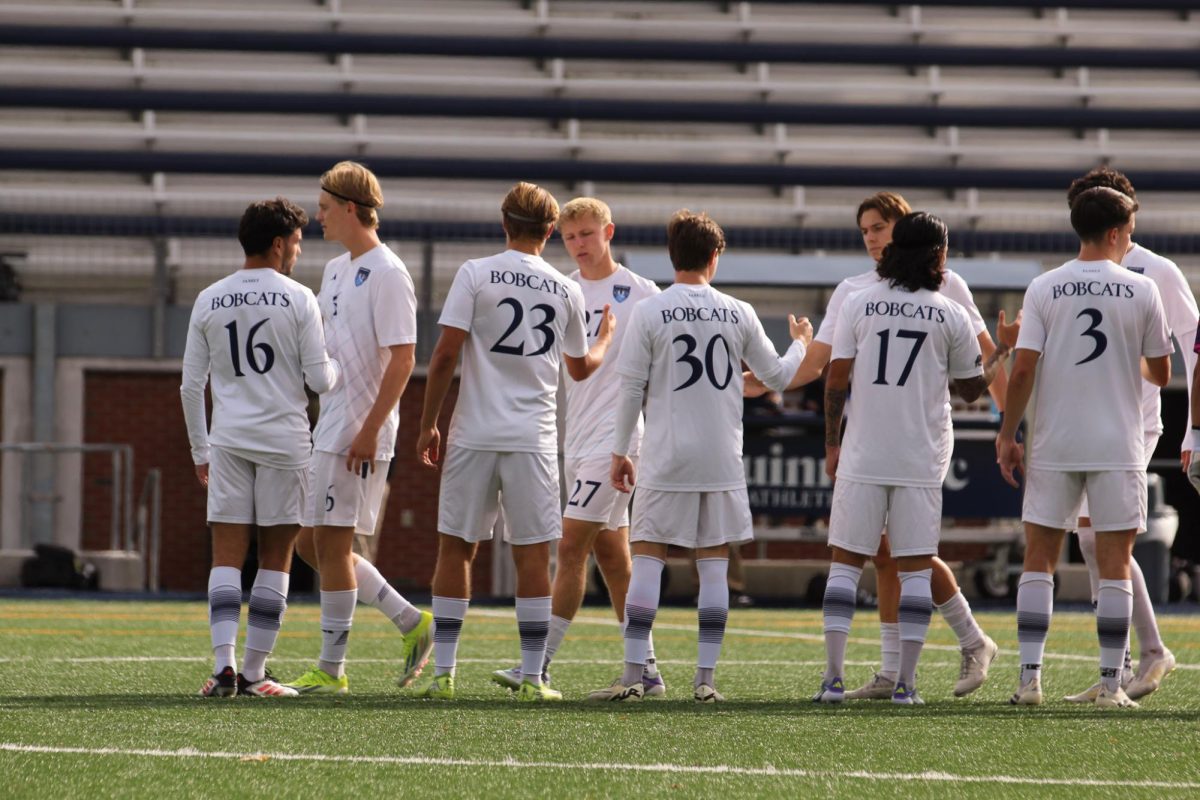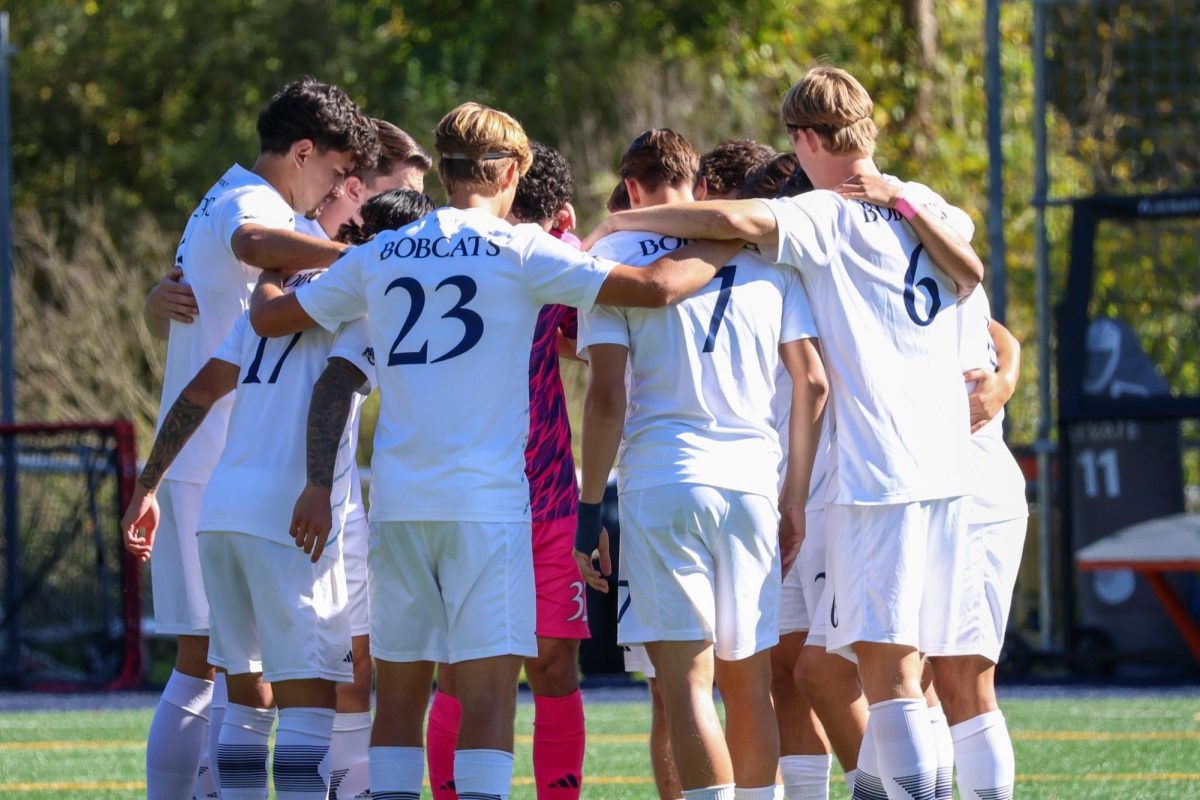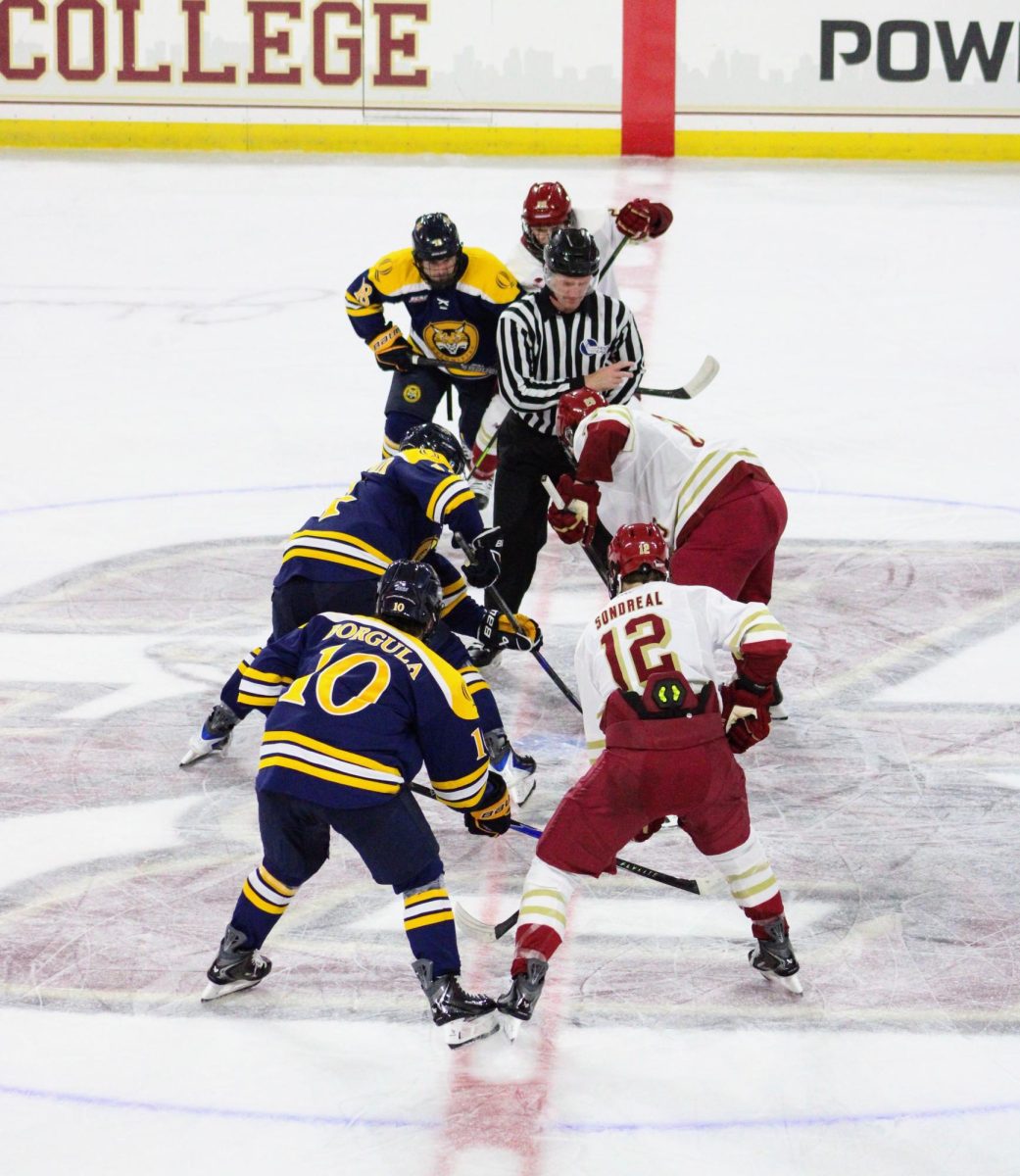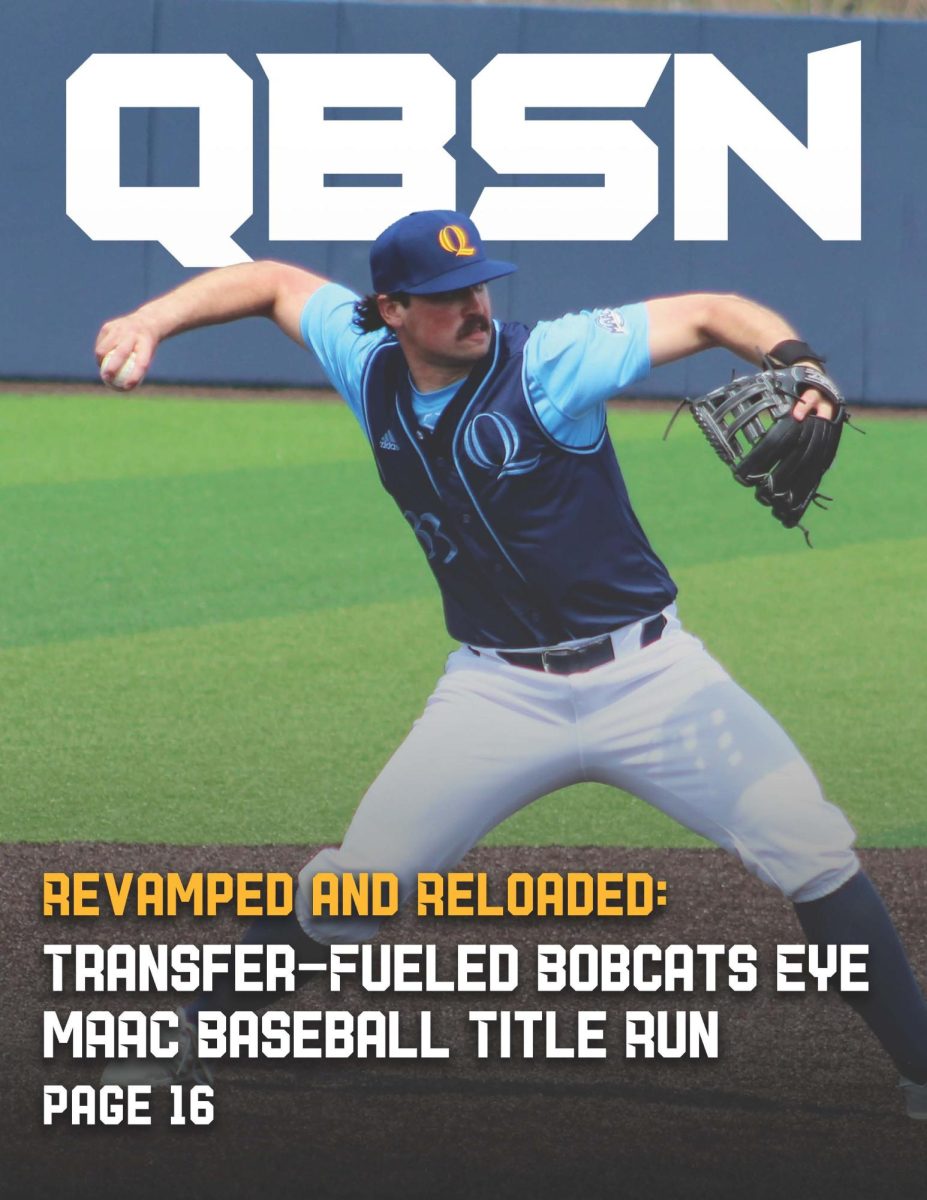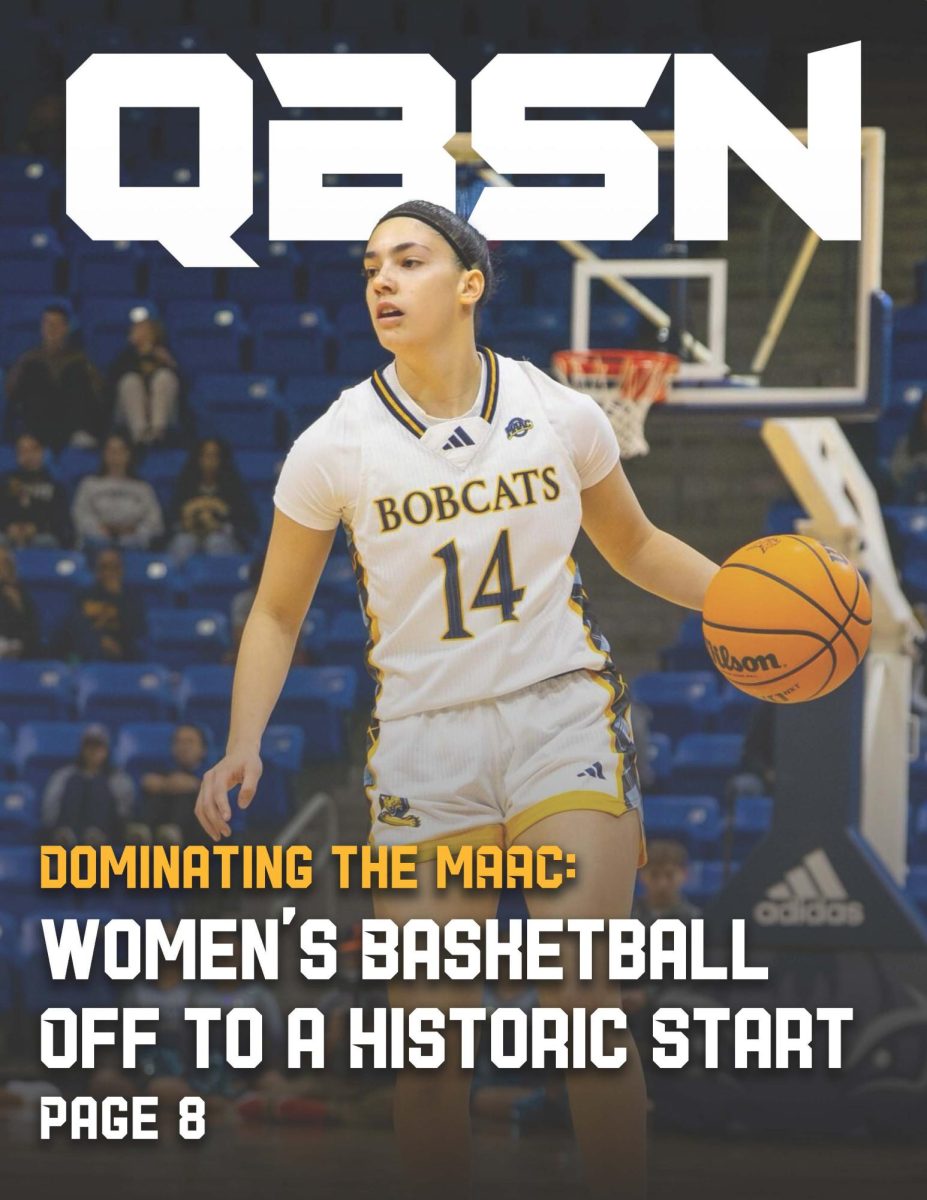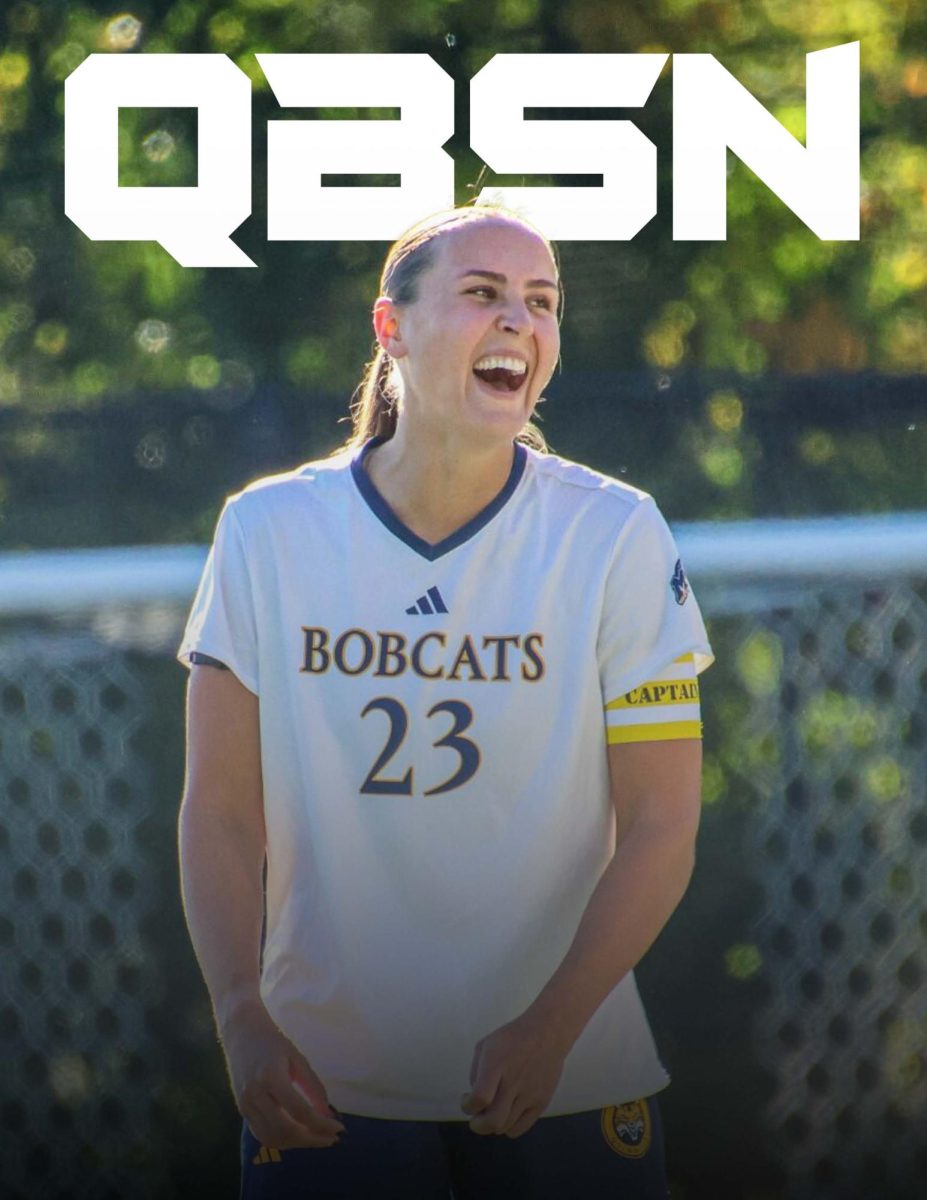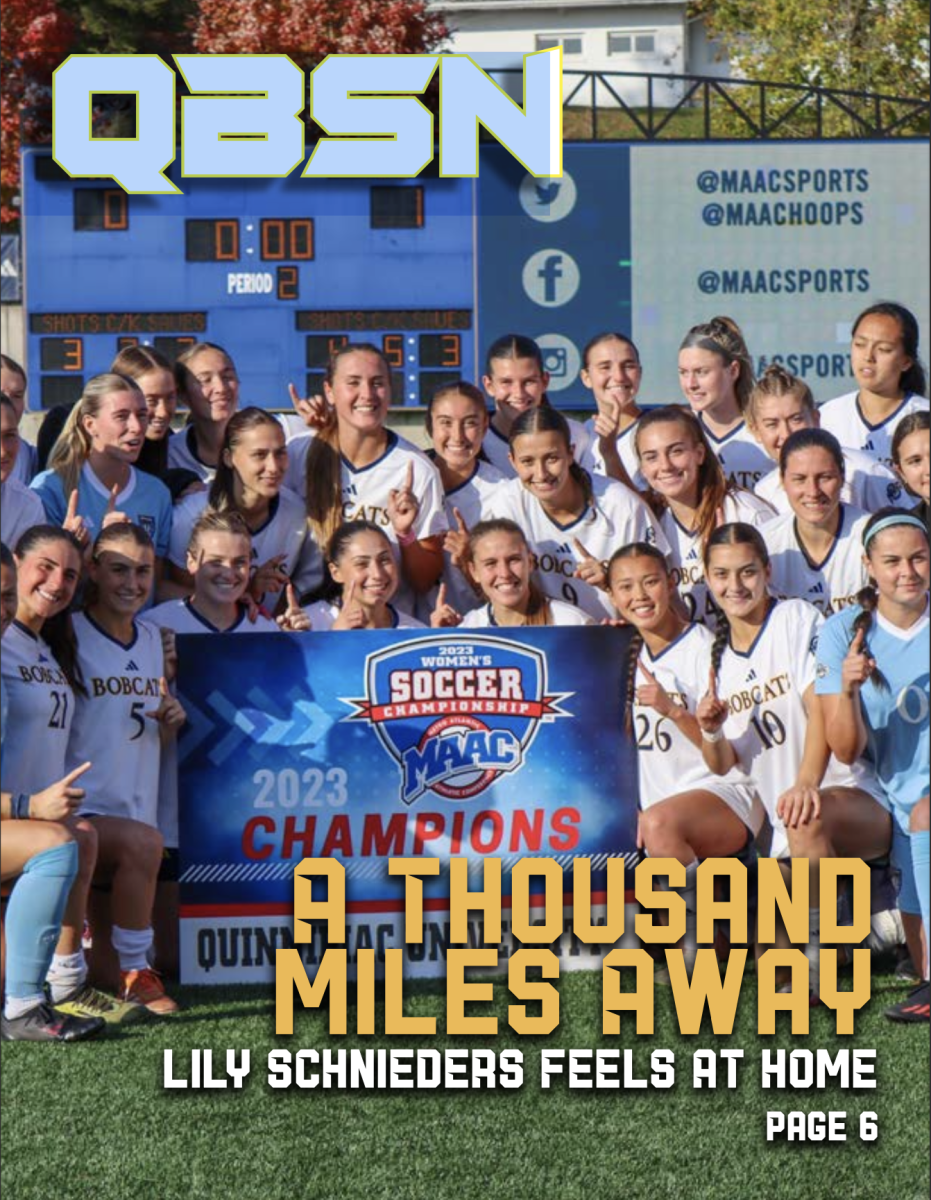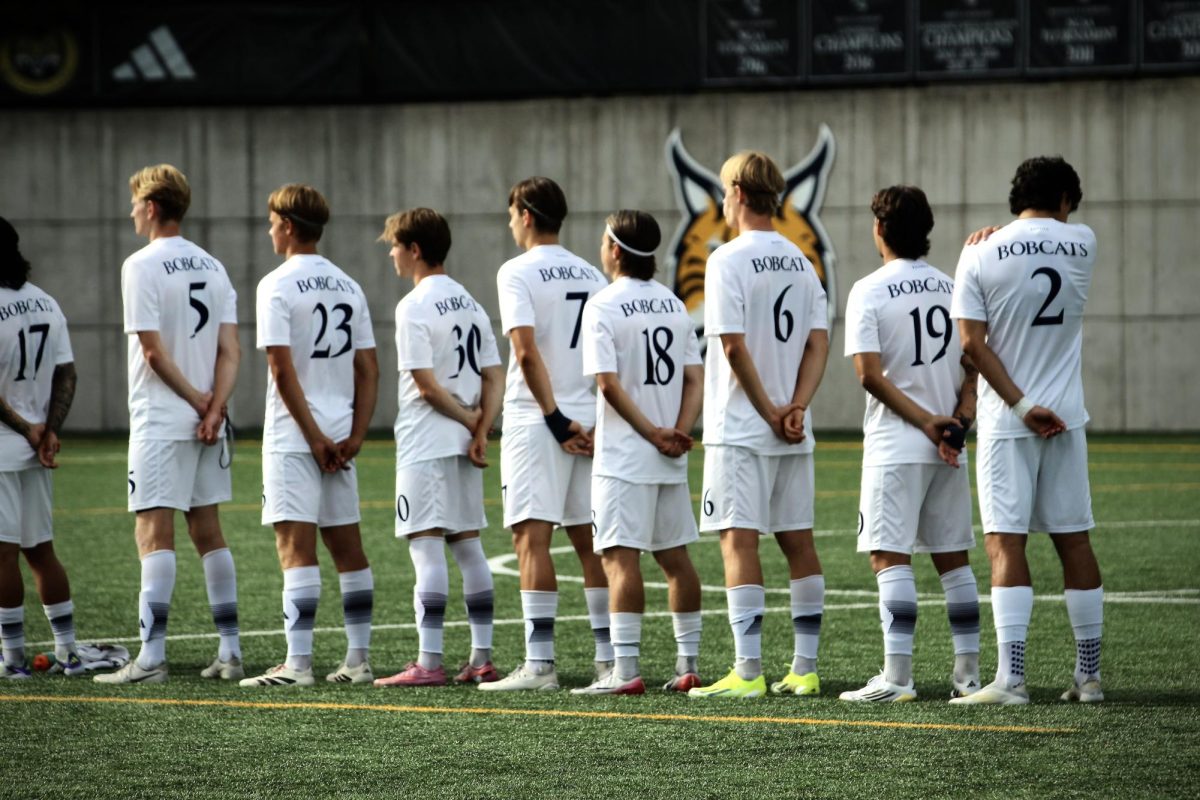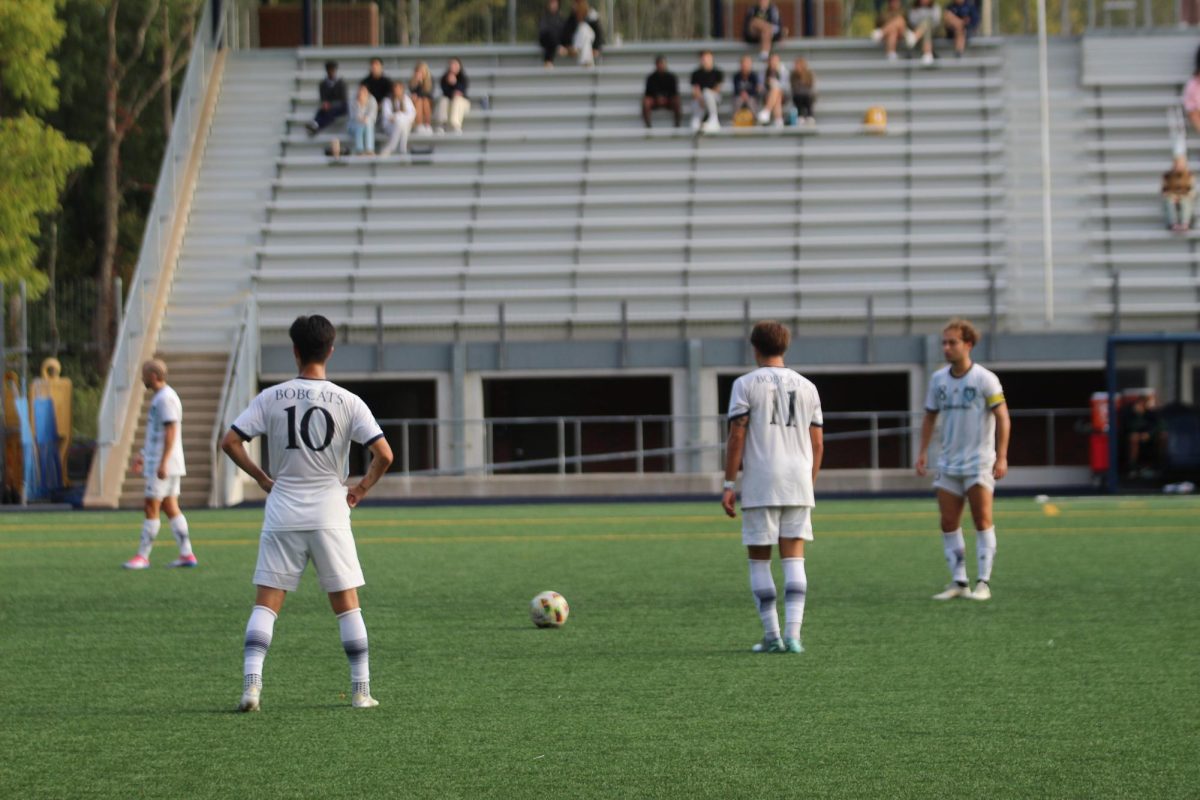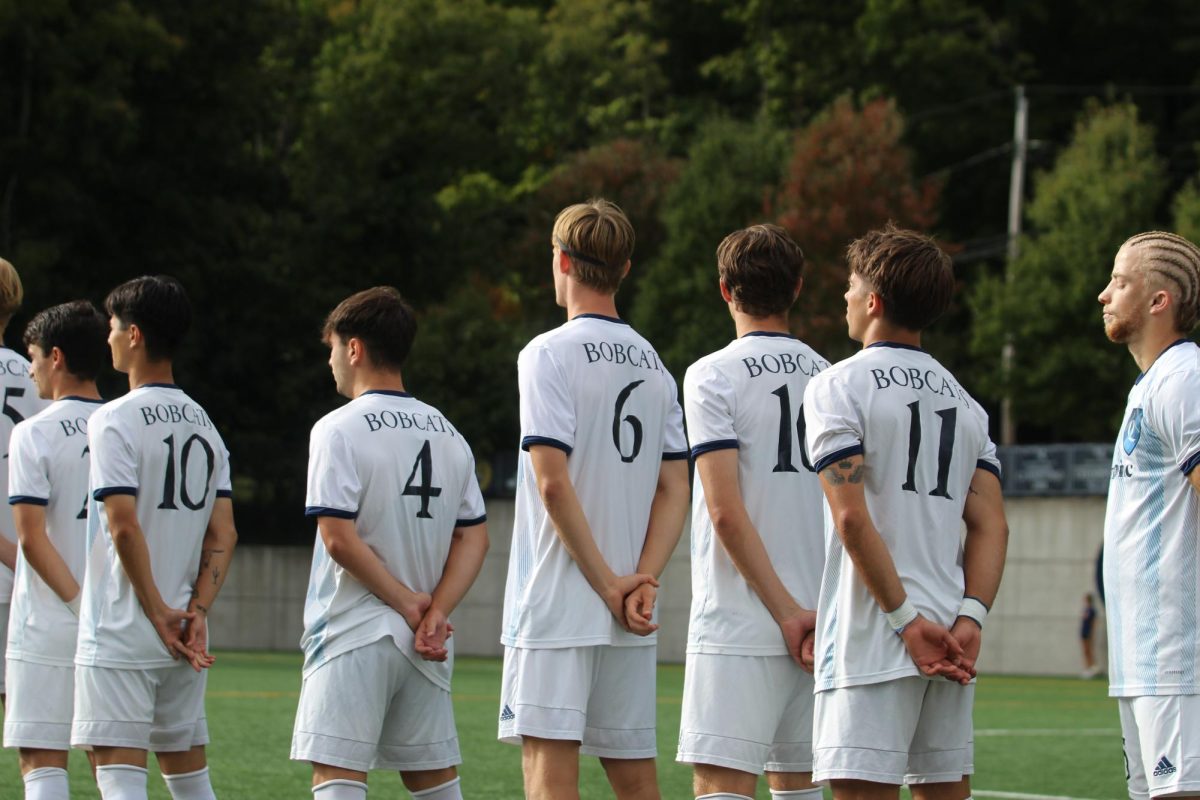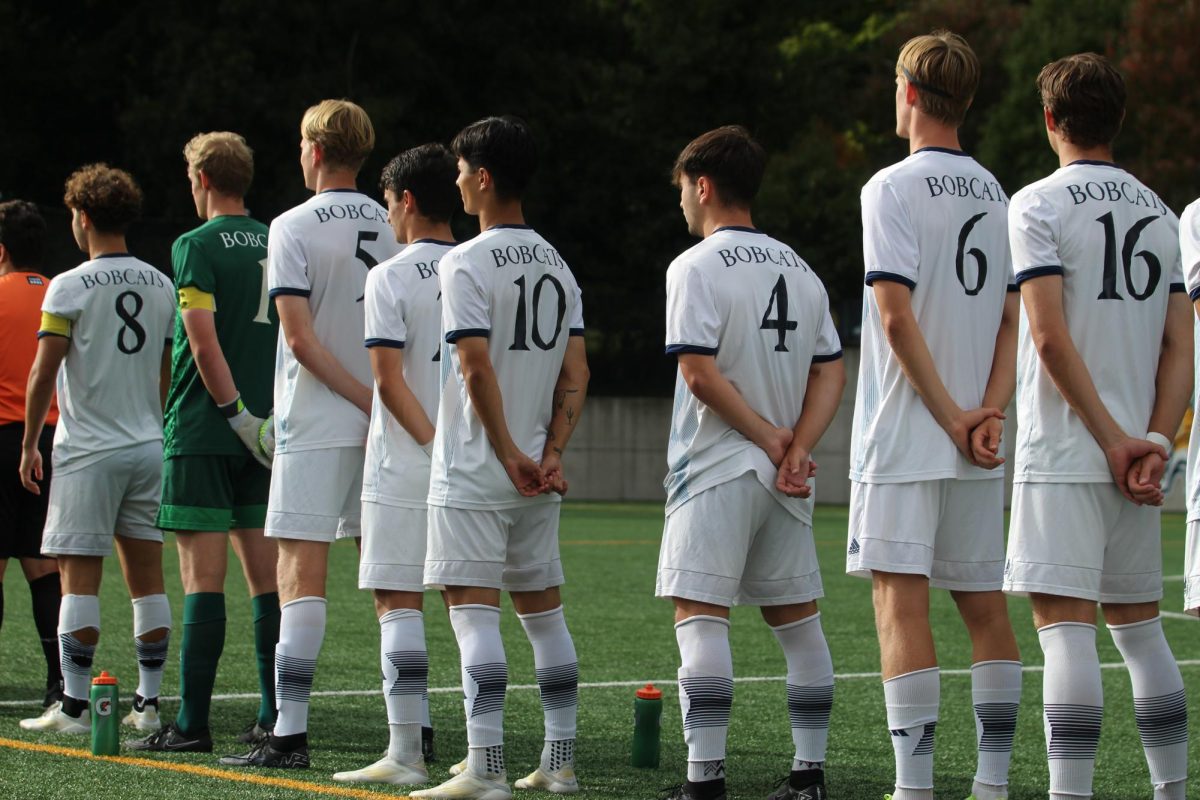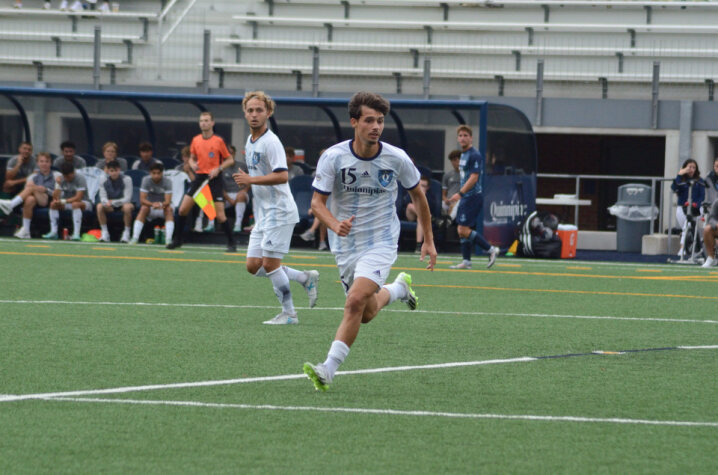By Connor Fortier
Transitioning to college life as an athlete takes discipline and determination, but most athletes at Quinnipiac manage with the help of their teams and the support of family.
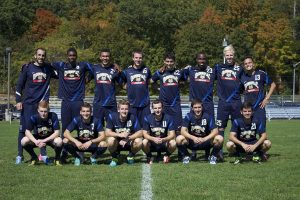
Now imagine living, learning and playing a sport in a new country. The stress of performing regularly at a Division I level is only topped by getting used to a new culture while keeping up with academics.
But for close to half of the men’s soccer players, this is a reality they deal with daily. Junior goalkeeper Borja Angoitia from Bilbao, Spain and freshman midfielder James Doig from Liverpool, England are just two of the 13 Bobcats to travel from around the world to Hamden.
It is through the recruitment process that these soccer players are noticed by coaches in the U.S. Even though both Doig and Angoitia are from two different countries, their recruitment processes were similar.
“I went through an agency back home,” Angoitia said. “They would send videos and information to every school, Division I, II and III, and whatever response they would get back, they would inform me, and always Quinnipiac would show the most interest.”
The soccer fanbase in America is not as big as it is in Europe, and with a change of scenery comes a change of game play for Doig and Angoitia.
“The biggest difference is that you play a game every three days here, whereas back home you play a game every week and the season goes from the summer to the spring,” Angoitia said.
Though some of the changes are welcomed, Doig made note of the extra time between games and the benefit it has with the emotional side of play.
“Back at home we get much more time to get over defeat or [bask] in glory, where here we don’t usually have much time in between games, and everything is short-lived,” Doig said.
Not only is the schedule different in the states but so is the type of player.
“Over here players are a lot stronger and [more] physical,” Doig said.
Even from his position on the goal line, Angoitia notices a difference in the physicality of play.
“The league here is filled more with total athletes rather than pure soccer players while everyone is a lot more physical,” Angoitia said.
With all of the initial changes from European to American soccer, Angoitia has still noticed a progression in his years at Quinnipiac.
“Since my first year to now I notice that coaches are putting together more of a finesse team rather than a physical one, so over here it is changing more and more,” Angoitia said.
Playing a sport in college comes with the challenge of balancing academics, and both Doig and Angoitia felt that pressure at first. Because Doig is a freshman, he is experiencing that first year pressure now.
“The team’s very close knit, so it was easy to settle in, and now that I’m adapting, they are all helping me,” he said.
So far this season both Doig and Angoitia have made their marks on the team with Doig starting as a freshman and Angoitia winning MAAC Defensive Player of the Week twice.



